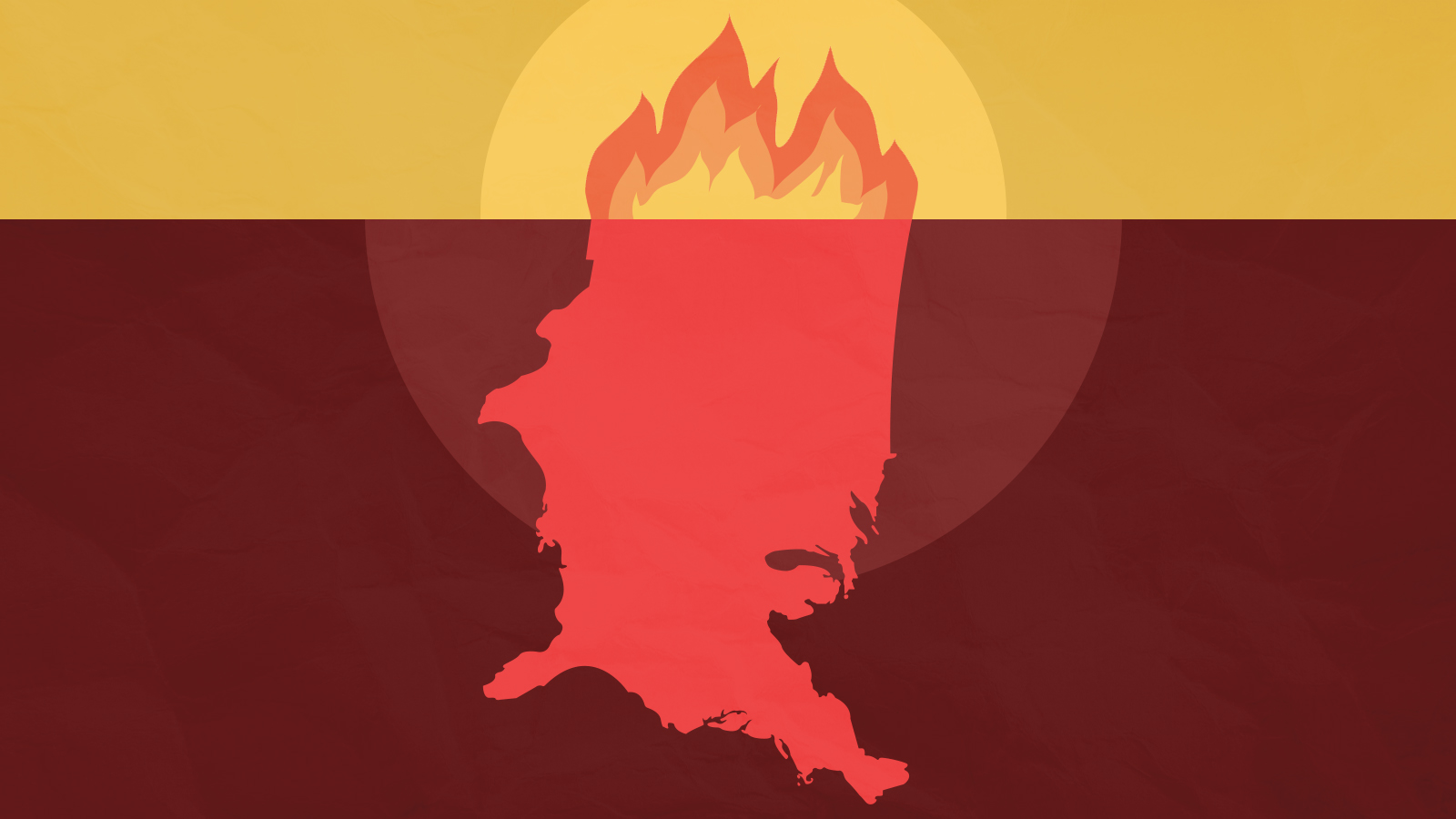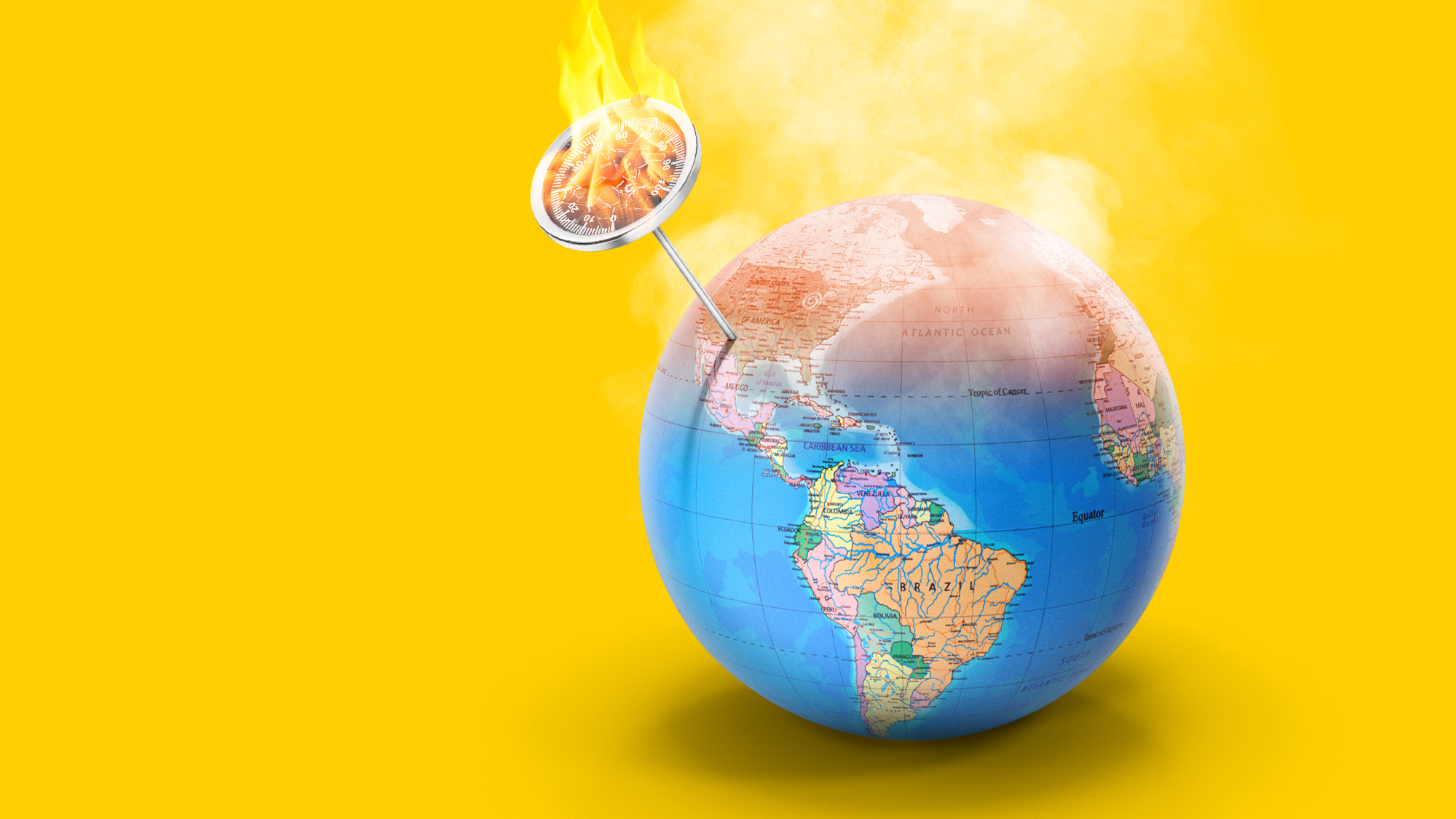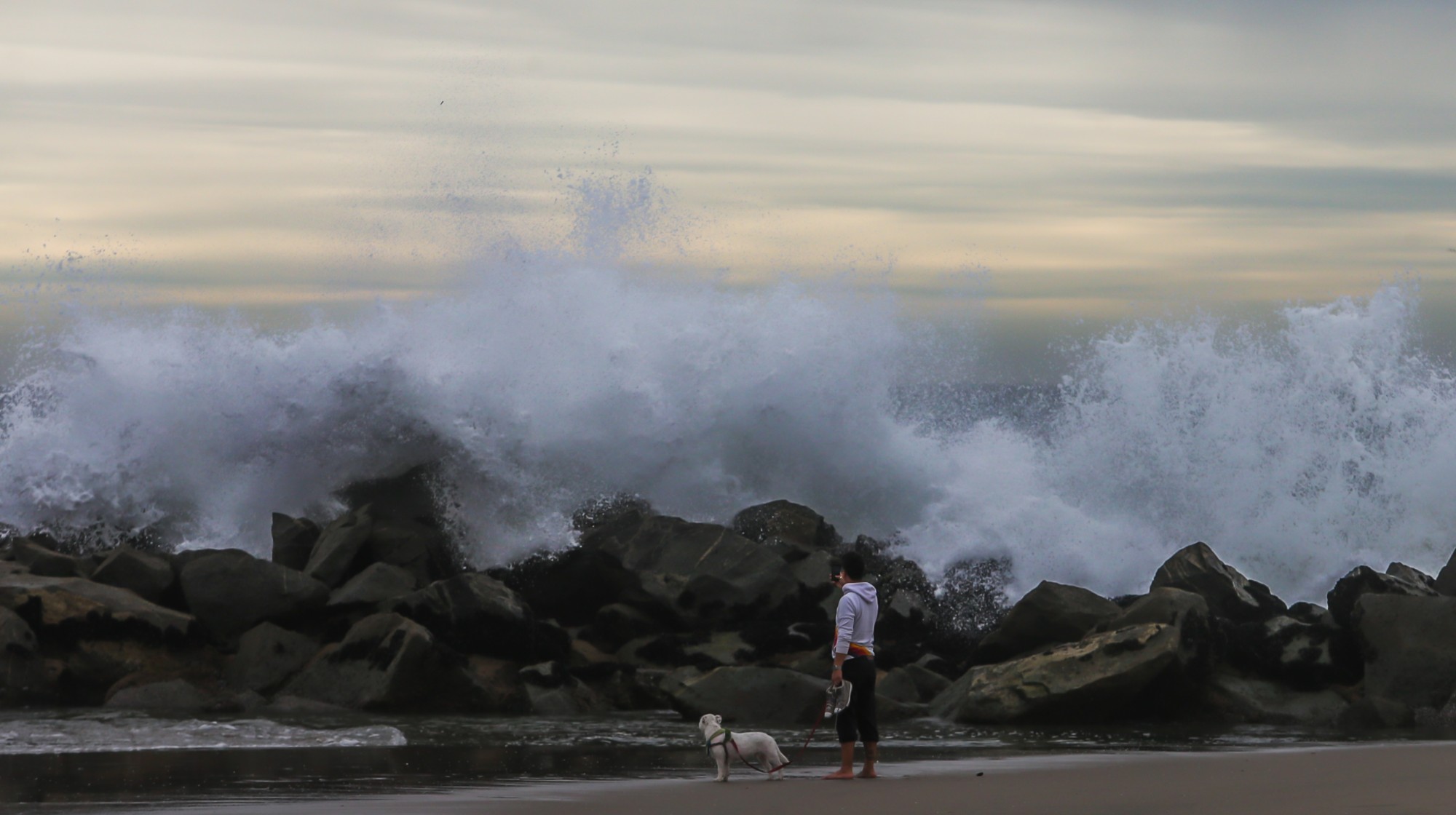America's backward climate politics are cooking the country
Ted Cruz is tweeting while Texas fries


A free daily email with the biggest news stories of the day – and the best features from TheWeek.com
You are now subscribed
Your newsletter sign-up was successful
The interminable Senate negotiations on infrastructure are grinding on. A bipartisan group of conservatives is reportedly attempting to hammer out some kind of bargain (though the sincerity on the Republican side should be viewed with extreme suspicion), while a growing group of progressive senators and representatives say they will not vote for anything that doesn't have adequate provisions to fight climate change. In response, Sen. John Thune (R-S.D.), the second-ranking Senate Republican, has reportedly said that the focus on climate change risked his support.
One couldn't ask for a better argument for the progressive position than what is currently happening across the American west. At time of writing, a region from western Texas to California is in the grips of extreme drought, while Texas is suffering electricity shortages due to unseasonable heat. But this has made no dent in the conservative position. It's a perfect example of how broken the politics of climate change are in this country.
A climate science paper from last year found that the last two decades in the Southwest have seen a "megadrought" — the period from 2000 to 2018 was the driest period since the 1500s and the second-driest since 800. Climate change was responsible for nearly half of the reduction in precipitation, pushing "what would have been a moderate drought in southwestern North America into megadrought territory." Since that paper was published, the drought has only gotten worse.
The Week
Escape your echo chamber. Get the facts behind the news, plus analysis from multiple perspectives.

Sign up for The Week's Free Newsletters
From our morning news briefing to a weekly Good News Newsletter, get the best of The Week delivered directly to your inbox.
From our morning news briefing to a weekly Good News Newsletter, get the best of The Week delivered directly to your inbox.
As Peter Annin writes at The Washington Post, the megadrought has already forced the imposition of heavy water restrictions in many Southwest states and cities, and even more strict controls will likely be imposed by the end of the year. Lake Mead, the largest reservoir in the country, will probably be below the level at which a water shortage must be declared by this August, which will trigger all manner of conservation measures. If levels continue to drop throughout the Colorado River system, the Southwest states will have no choice but to impose yet more strict rationing.
Agriculture is still the primary human consumer of water in every state in the Southwest. A lot of that in Arizona and Colorado is uneconomical alfalfa and cotton farms, but California agriculture is tremendously productive — accounting for roughly a third of America's vegetable production and two-thirds of its fruit and nuts. Continued climate change-fueled drought literally threatens our national food supply.
Meanwhile in Texas this week, an unseasonable heat wave — more and more common because of climate change — has been driving extremely high demand for electricity, and apparently knocked a number of power plants offline. The Texas grid regulator thus urged Texans to cut their electricity use during the day to avoid causing blackouts. Ironically, the state government just finished a reform package meant to address the previous catastrophic blackout, caused by the February blizzard, that killed perhaps 700 people. Experts canvassed by The Texas Monthly agree that the package would at least help somewhat, but it is plainly evident that it wasn't enough.
All this is profoundly humiliating for smug, self-satisfied Texas boosters like Sen. Ted Cruz, who has boasted that his state is scooping up lots of California businesses and residents.
A free daily email with the biggest news stories of the day – and the best features from TheWeek.com
I'm no engineer or MBA, but I am confident in saying that one important thing for high-tech business is electric power. I'm pretty sure computers need that to work.
Conservatives always like to pretend that energy policy is simple and easy: just burn tons of fossil fuels and treat the environment with sneering contempt. In fact, an electric grid is a delicate and extremely complicated piece of machinery, vulnerable to extremes of both heat and cold — a fact that Texas has been beaten over the head with twice in less than four months. The longer Texas and the rest of the U.S. takes to get away from filthy carbon power, the more damage we will cause to our own infrastructure.
Future Americans, if there are any, will no doubt struggle to understand why Texas politicians weren't at the forefront of the push for climate investment. One of the very top priorities would be huge upgrades to the Texas grid — to ruggedize and diversify its power sources and transmission lines, and especially add new connections to the rest of the country. (Just like in the February cold snap, while the Texas grid was bending under the strain this week, surrounding states are doing better thus far.) Instead, they are doing all they can to stop the federal government from helping their own state.
Until conservatives can stop treating climate change like some nonsense cooked up by the Sierra Club, they will continue to wreck their own communities in their eternal quest to own the libs.
Ryan Cooper is a national correspondent at TheWeek.com. His work has appeared in the Washington Monthly, The New Republic, and the Washington Post.
-
 Switzerland could vote to cap its population
Switzerland could vote to cap its populationUnder the Radar Swiss People’s Party proposes referendum on radical anti-immigration measure to limit residents to 10 million
-
 Political cartoons for February 15
Political cartoons for February 15Cartoons Sunday's political cartoons include political ventriloquism, Europe in the middle, and more
-
 The broken water companies failing England and Wales
The broken water companies failing England and WalesExplainer With rising bills, deteriorating river health and a lack of investment, regulators face an uphill battle to stabilise the industry
-
 Trump’s EPA kills legal basis for federal climate policy
Trump’s EPA kills legal basis for federal climate policySpeed Read The government’s authority to regulate several planet-warming pollutants has been repealed
-
 Trump pulls US from key climate pact, other bodies
Trump pulls US from key climate pact, other bodiesSpeed Read The White House removed dozens of organizations from US participation
-
 The billionaires’ wealth tax: a catastrophe for California?
The billionaires’ wealth tax: a catastrophe for California?Talking Point Peter Thiel and Larry Page preparing to change state residency
-
 Bari Weiss’ ‘60 Minutes’ scandal is about more than one report
Bari Weiss’ ‘60 Minutes’ scandal is about more than one reportIN THE SPOTLIGHT By blocking an approved segment on a controversial prison holding US deportees in El Salvador, the editor-in-chief of CBS News has become the main story
-
 Trump aims to take down ‘global mothership’ of climate science
Trump aims to take down ‘global mothership’ of climate scienceIN THE SPOTLIGHT By moving to dismantle Colorado’s National Center for Atmospheric Research, the White House says it is targeting ‘climate alarmism’
-
 ‘It’s ironic in so many ways’
‘It’s ironic in so many ways’Instant Opinion Opinion, comment and editorials of the day
-
 Newsom slams Trump’s climate denial at COP30
Newsom slams Trump’s climate denial at COP30speed read Trump, who has called climate change a ‘hoax,’ declined to send any officials to this week’s summit
-
 Alaska faces earth-shaking loss as seismic monitoring stations shutter
Alaska faces earth-shaking loss as seismic monitoring stations shutterIN THE SPOTLIGHT NOAA cuts have left the western seaboard without a crucial resource to measure, understand and predict tsunamis
